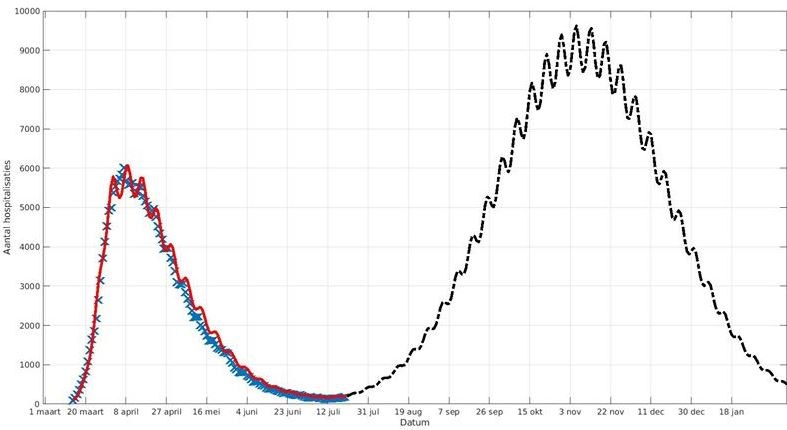A second coronavirus peak in Belgium would be a lot higher than the first, according to a model based on Sciensano's figures for the number of hospitalisations by VUB professor of biostatistics Kurt Barbé.
"My model keeps the current R-factor (the reproduction number) at 1.2064," Barbé said in a Facebook post on Tuesday.
In May, Barbé made projections about what a second coronavirus wave might look like, together with his colleagues Geert Molenberghs and Niel Hens. "I fear that the data are consistent with the pessimistic expectations that were made then," Barbé said.
According to his model, the second wave has started.
At the moment, the number of patients in hospital is still increasing very gradually. In late September, the number of hospital admissions would surpass that of about 6,000 in early April, when Belgium reached its peak. A new peak would be reached in November, with almost 10,000 patients in hospital.
According to his colleague Molenberghs, the trend is worldwide. "The rapid rise is in line with what we see in the rest of the world," he said earlier in De Morgen.
Related News
- Local lockdowns will likely happen soon, says Belgian expert
- Belgium's average rises to 184 new coronavirus infections per day
- Mayors get manual on how to handle local outbreaks
"Belgium is really not alone in this. Look at Ireland. Or Australia, a country where the situation appeared to be under control for a long time, but where another lockdown has been declared in two states. Suddenly they are in trouble again, and the virus starts flaring up everywhere again," Molenberghs said.
If local lockdowns will not be implemented soon, we are heading for a second, more drastic total lockdown, according to him.
Just like Molenberghs, Barbé is afraid that local lockdowns will be unavoidable.
"The exponential growth is starting, and there is still a lack of awareness that this is a multiplicative process," Barbé said. "It is going slow, which makes it easy to downplay, but that is inherent to such a process," he added.
"We still have until 31 July to reverse the growth. Stabilisation is not enough," Barbé said.
Maïthé Chini
The Brussels Times

